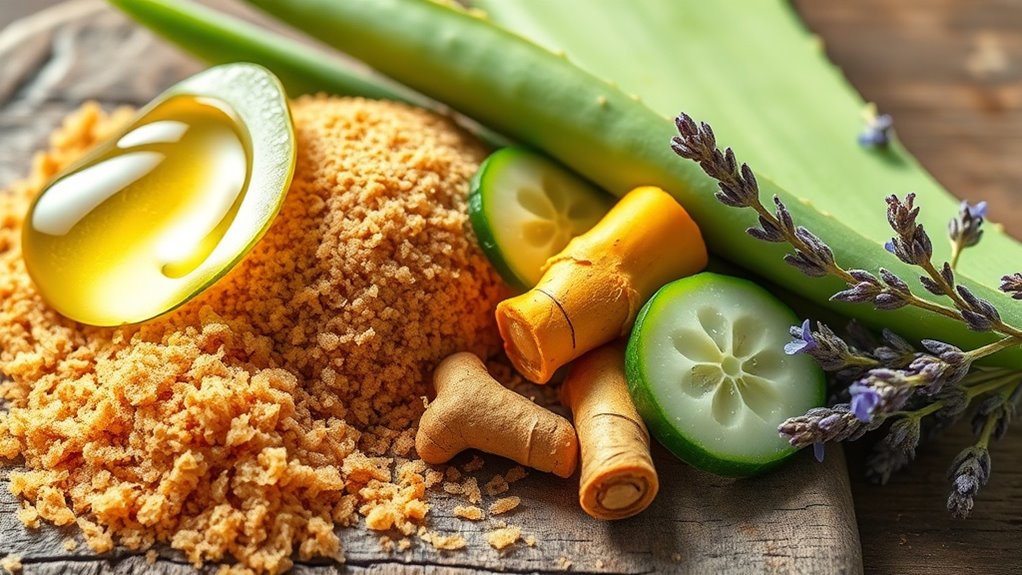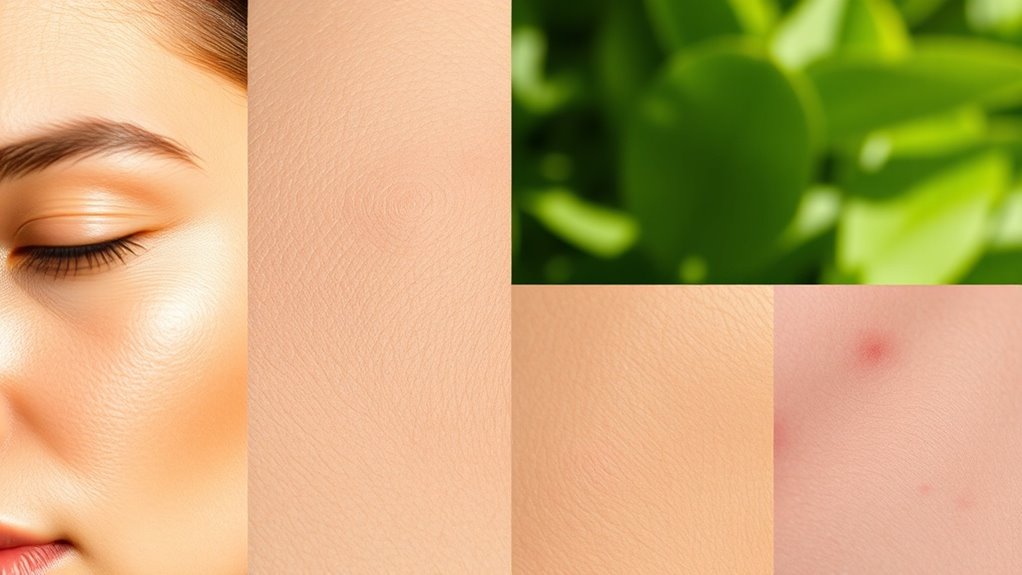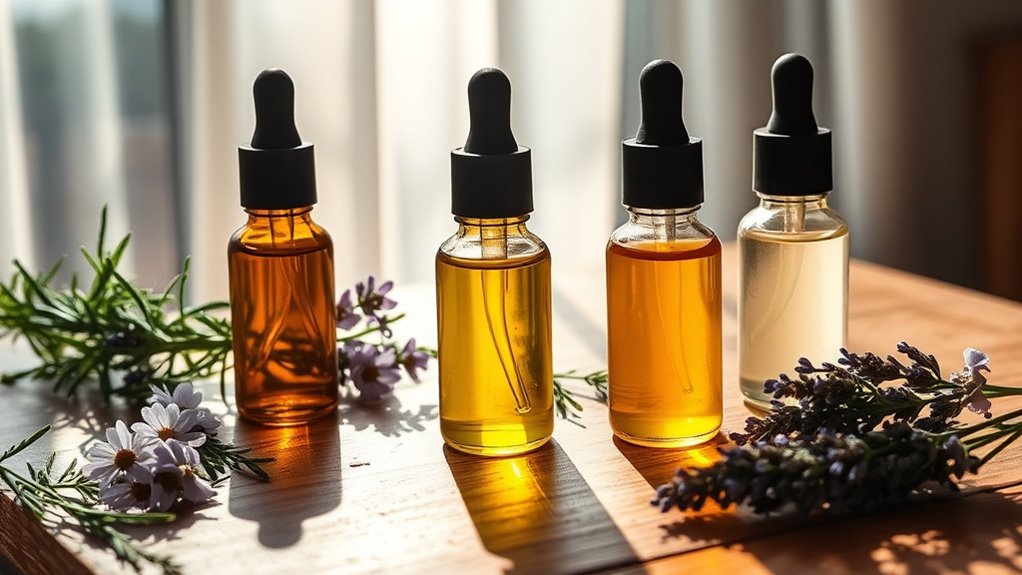These Natural Ingredients May Be the Secret to Healthier Skin
Just like a gardener carefully selects the right plants to cultivate a thriving garden, you too can harness the power of natural ingredients for healthier skin. With soothing aloe vera and deeply hydrating coconut oil, your skin may transform in ways you’ve yet to imagine. Yet, the full potential of these elements remains to be explored. How can they better your daily skincare routine and unlock the secret to a radiant complexion?
The Power of Aloe Vera
When you think about natural remedies for skin care, aloe vera often stands out as a powerhouse ingredient. Its anti-inflammatory properties help soothe irritated skin, while antioxidants protect against environmental damage.
Aloe vera’s ability to hydrate makes it a staple in nature skincare, promoting healing and maintaining skin elasticity. Incorporating it into your routine can enhance both appearance and overall skin health, scientifically validating its reputation.
Benefits of Coconut Oil
Coconut oil has gained recognition in the skincare community, thanks to its versatile properties that cater to various skin needs.
It’s rich in fatty acids, providing deep hydration while acting as an effective barrier against environmental toxins.
Moreover, its antimicrobial properties may help reduce acne and soothe inflammation, making it an excellent choice for maintaining a balanced and healthy complexion. Additionally, using coconut oil can aid in fading post-acne marks, as it promotes skin healing and improves overall skin texture.
Jojoba Oil: A Natural Moisturizer
Jojoba oil stands out as a remarkable natural moisturizer, prized for its unique composition that closely resembles human sebum. This similarity allows it to penetrate the skin effectively, providing hydration without clogging pores. Here’s a quick comparison of jojoba oil’s benefits:
| Feature | Benefits | Why It Matters |
|---|---|---|
| Composition | Similar to sebum | Balances oil production |
| Absorption | Rapid absorption | Leaves skin feeling non-greasy |
| Versatility | Suitable for all skin types | Helps all skin conditions |
Additionally, incorporating jojoba oil into your routine can enhance your skincare results due to its ability to promote proper hydration, which is essential for maintaining skin health.
Honey: Nature’s Healing Nectar
Following the benefits of jojoba oil, honey emerges as another powerful natural ingredient for skin care.
Its antimicrobial properties help combat acne and soothe inflammation. Packed with antioxidants, honey promotes healing and skin regeneration, while its humectant nature attracts moisture, keeping your skin hydrated. Incorporating honey into your routine can enhance your complexion, making it a valuable tool for achieving healthier skin. Additionally, its ability to promote skin regeneration underscores its significance in a comprehensive approach to natural wrinkle reduction.
Tea Tree Oil for Clearer Skin
When it comes to achieving clearer skin, tea tree oil stands out as a potent natural remedy. Its antibacterial and anti-inflammatory properties make it effective against acne and blemishes. Utilizing tea tree oil regularly can help reduce outbreaks and improve skin texture. Here’s a quick overview of its benefits:
| Benefits | Usage | Results |
|---|---|---|
| Antimicrobial | Apply diluted | Reduced blemishes |
| Anti-inflammatory | Spot treatment | Calm irritated skin |
| Pore-clearing | Facial cleanser | Improved skin texture |
Incorporating gentle skincare routines can further enhance the effectiveness of harsh treatment products.
The Nutritional Boost of Avocado
Although you might primarily think of avocados as a delicious addition to your diet, their nutritional profile offers significant benefits for your skin as well.
Rich in vitamins E and C, avocados help combat oxidative stress and promote collagen production.
The healthy fats they contain enhance skin hydration, leaving you with a smoother, more radiant complexion when included in your skincare routine. Additionally, the antioxidants in avocados help protect skin cells from damage, further contributing to your skin’s overall health.





